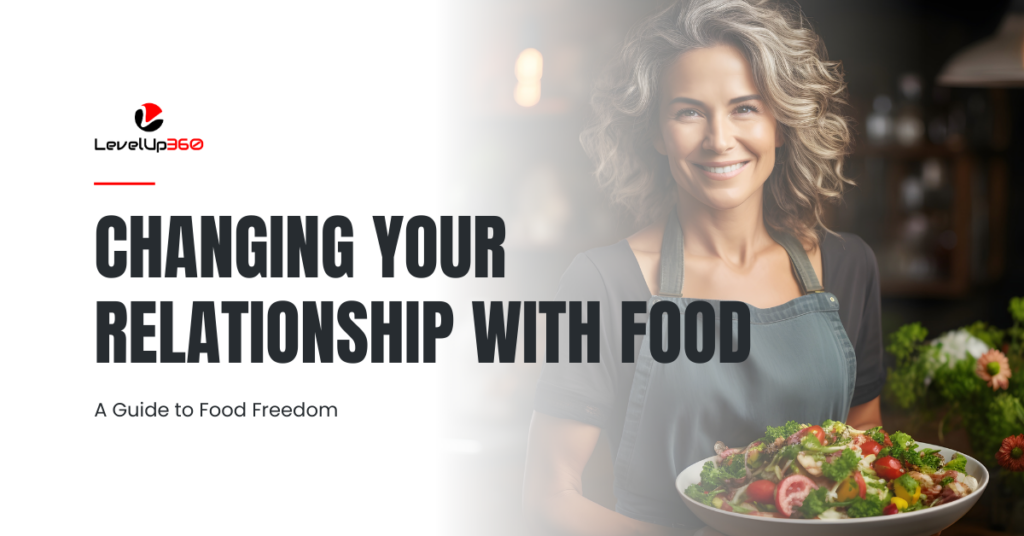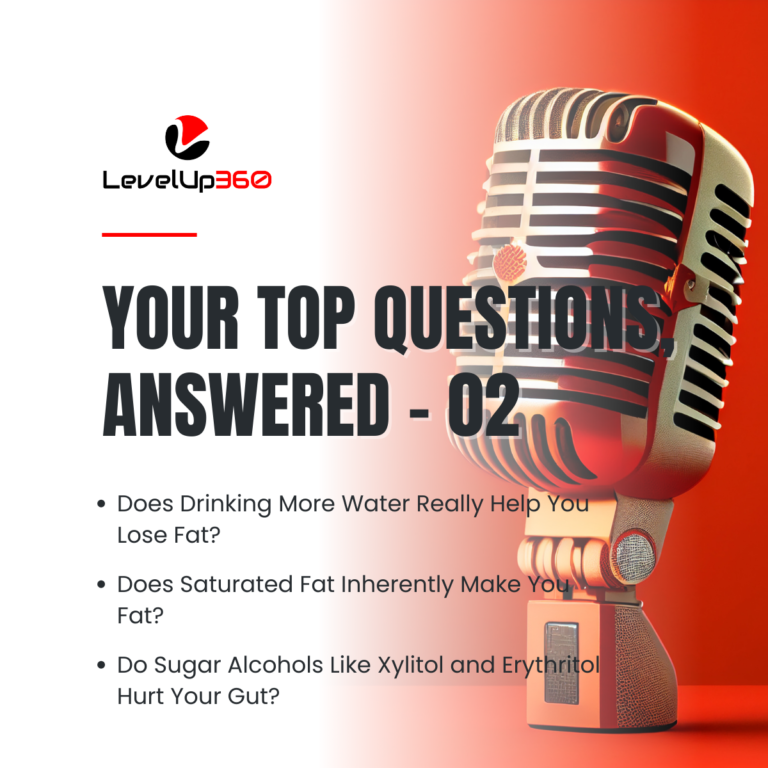
Changing Your Relationship With Food: A Guide to Food Freedom
Do you constantly think about food? Do you feel out of control around certain foods, and unable to stop eating once you start? Does the mental chatter about food feel unrelenting? If so, you’re far from alone. Countless people today struggle with their relationship to food. The good news is that by making a few simple changes, you can transform that relationship and finally achieve the lasting change you desire.
In this article, we’ll walk through the key steps to changing your relationship with food, drawn from the latest psychology research. You’ll learn specific, tactical ways to break free from disordered eating patterns like bingeing, restriction, and guilt. The focus here is not on calories or macronutrients – it’s on addressing the emotional and psychological factors that drive your behaviour with food. Mastering these skills, and reaching a healthy weight will feel effortless. Continue ignoring them, and fat loss will remain a frustrating battle.
Changing your relationship with food requires rewiring deeply rooted thought and behaviour patterns. Progress takes time, but each small step forward sets the stage for revolutionising the way you eat long-term.
Why Your Relationship With Food Matters
Most diet advice focuses exclusively on energy balance – eat less and move more. However, science shows that external behaviours are driven by internal belief systems. If your relationship with food is poor, any diet regiment imposed on top will eventually crumble.
Think of it this way: Would a home stand sturdy without a solid foundation? Of course not. In the same way, lasting weight loss requires reconstructing from the ground up how you perceive, think about and interact with food. Outer dietary changes made from a place of deprivation and restriction, rather than conscious choice, are doomed to fail.
Focus first on mending your relationship with food, and the rest will follow. Skip this step, and the struggle continues. Fixing this relationship is not just feel-good fluff – it’s an essential prerequisite for success.
4 Steps to Improving Your Relationship With Food
Ready to break free from stress and guilt around eating? Here are the four key steps:
1. Change Your Words
Stop labelling foods as good or bad, healthy or unhealthy. These simplistic categories distort reality. No foods are inherently “bad” or fattening. Ice cream, pizza and cookies can be part of a healthy diet in moderation. Broccoli, chicken and rice can cause weight gain in excess.
Watch your vocabulary around food. Cut out terms like “cheat meal,” “guilt-free,” “junk food” and “fattening.” Don’t judge yourself for eating certain foods. This judgmental language reinforces feeling deprived, fuelling the binge-restrict cycle. Speak neutrally about all foods simply as foods.
2. Change Your Beliefs
Let go of beliefs like “sugar is toxic” or “carbs make me fat.” Research shows no foods intrinsically cause fat gain or disease. Foods high in sugar and refined carbs contribute to overeating and thus weight gain in excess. But in moderation as part of an overall healthy diet, these foods are fine for most people. Banning foods leads to craving and bingeing. An open, flexible approach supports balance.
3. Change Your Emotions
Eliminate feelings of guilt, anxiety or moral judgment around food. Feeling shame after eating certain foods encourages restriction. This inevitably leads to intense cravings and bingeing later. All foods fit in moderation. No food merits guilt. Pay attention to physical hunger and fullness cues, not emotional reactions, when deciding what and how much to eat.
4. Change Your Actions
The final step is the key to lasting change. Take uncomfortable action contrary to old habits. Break the restrict-binge cycle by consciously and regularly eating previously “forbidden” foods in moderation without guilt. This teaches your brain moderation is safe and sustainable long-term. Facing feared foods helps release emotional power over eating.
Additional Tips for Success

- Make changes gradually. Don’t force a 180-degree flip overnight. Small, incremental steps build momentum.
- Expect discomfort at first as you challenge ingrained habits. Sit with the distress and keep going. It will pass.
- Focus on adding positive behaviours and foods, not restricting or banning. An addition mentality promotes balance.
- Keep a log of thoughts and feelings around eating experiences without judgment. Increased self-awareness supports change.
- Communicate openly with friends and family to align social support. Explaining this process elicits helpful accountability.
- Seek guidance from a health coach, psychologist or counsellor specialising in disordered eating if struggling. Professional support facilitates recovery.
Changing your relationship with food requires rewiring deeply rooted thought and behaviour patterns. Be patient and persistent through occasional setbacks. Progress takes time, but each small step forward sets the stage for revolutionising the way you eat long-term.
A Healthy Relationship with Food
When you’ve successfully reframed your relationship with food, you’ll feel in control without constant restriction. All foods fit in proper portions. No guilt or moral value judgments exist around eating. Food choices come from your internal wisdom, not fears or rigid rules.
Physically, a healthy relationship with food means eating according to your body’s signals of hunger, fullness and satisfaction. Mentally, it means granting yourself unconditional permission to eat while maintaining perspective. Emotionally, it means realising food’s role in culture and celebration without attachment to any particular food.
By following the steps in this article, you’ll form new habits that support balance and flexibility. When you relax dysfunctional relationships with eating, the path to sustainable change opens up. Let go of food rules, guilt and restriction. Instead, reconnect with your innate ability to eat in tune with your body.
Recommended reading
Recommended reading
Additional Resources
Feeling in control of your health
If you are interested in improving your health and wellness, check out other resources such as Our Blog, Free Resources and/or join our private Body-Mind Transformation Secrets Community on Facebook, and go on an even deeper dive with me to uncover how to succeed in your health and wellness goals.
You may also be interested in our Sleep Secrets Cheat Sheet. It is a great resource with strategies to fix and optimize your sleep which is crucial to succeeding in your health and wellness goals.
Resources
Pictures








